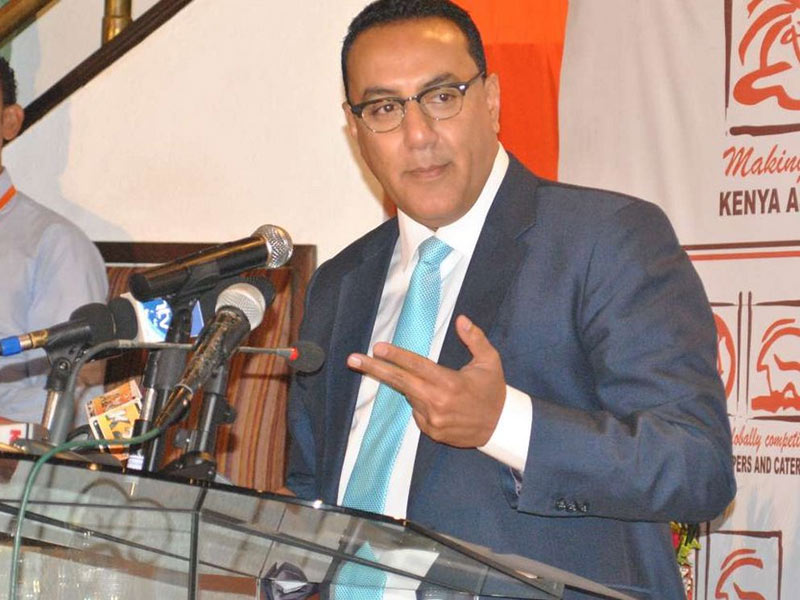×
The Standard e-Paper
Smart Minds Choose Us

Nairobi, Kenya: Tourism CS Najib Balala has demoted acting Director General Dr Julius Kimani and replaced him with Dr Charles Musyoki who was in charge of Kenya Wildlife Service training institute in Naivasha.
Dr Kimani returns to his previous position as head of parks and reserves.